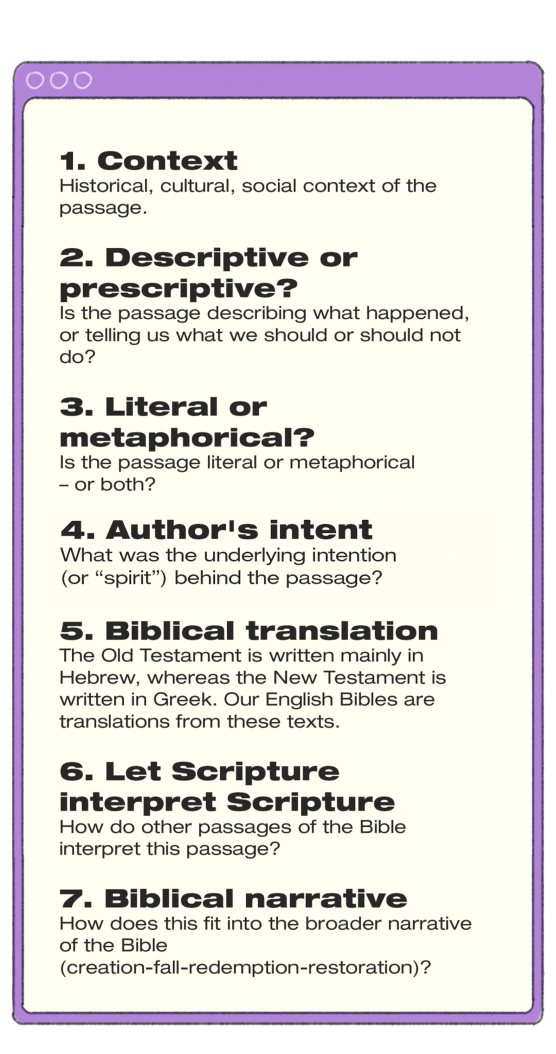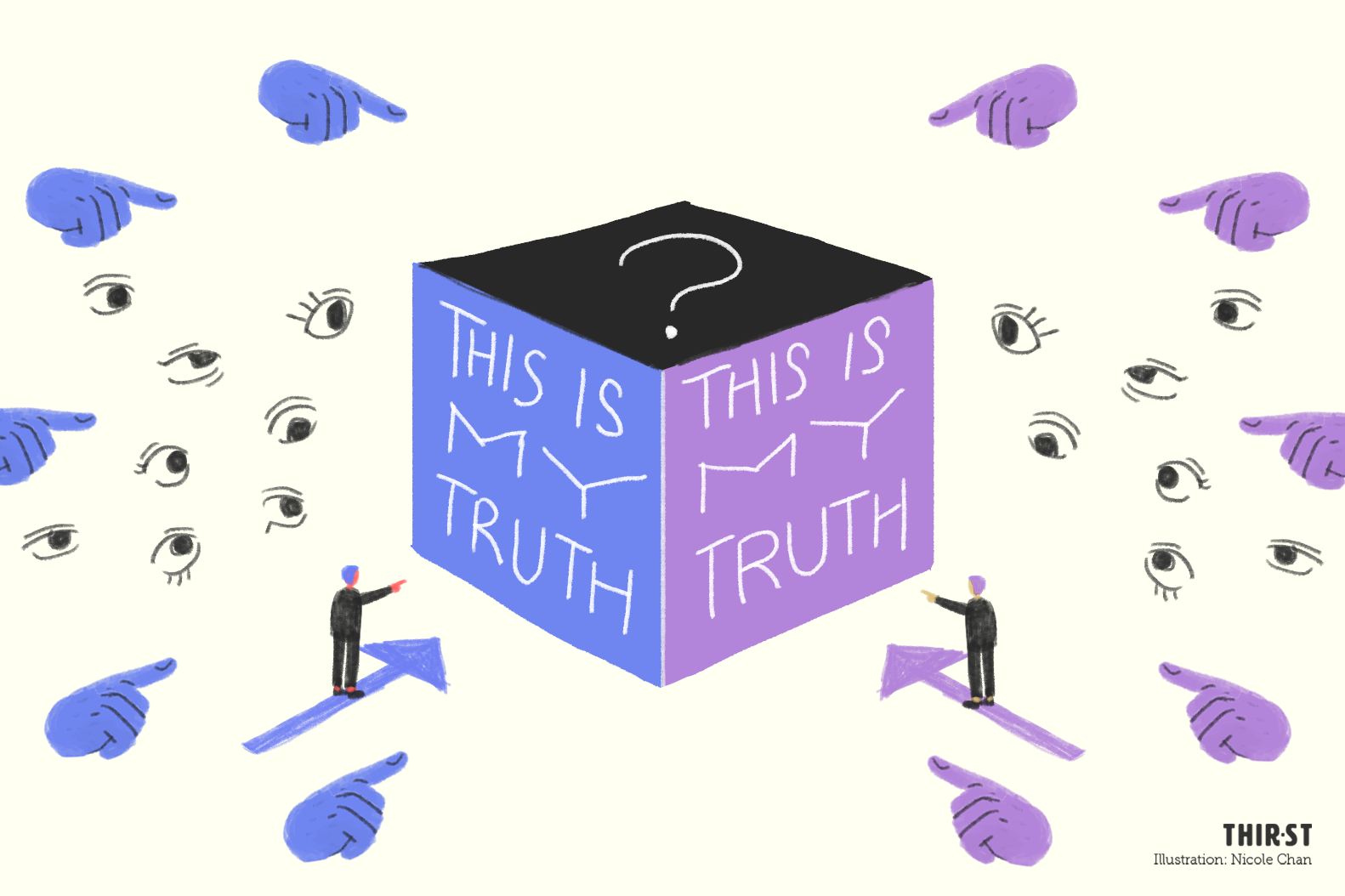Throughout history, humanity has been on a quest for truth. At our core, we all desire what is real and true.
And as Christians, we’ve also had to ask at one point: “How do we know God is real and His Word is the truth?”
Is there such a thing as “your truth” and “my truth”? Can truth be subjective?
The Apostle Paul knew faith had to be founded on truth. He put it bluntly: “And if Christ has not been raised, our preaching is useless and so is your faith.”
Essentially, he was saying: “If Jesus Christ isn’t the real deal, I’m wasting my time. And so are you.”
So, is there such a thing as “your truth” and “my truth”? Can truth be subjective?
These were the sort of questions tackled at the The Capstone Collective‘s Biblical Worldviews Foundations webinar where Darius Lee, who is a lawyer and also a writer for various publications, spoke on what truth is and how we can seek and stand for it in a world where opinions increasingly outweigh what is objective.

Lee began by explaining why truth matters: “At some time in your life, you’re going to have to say ‘I’m going to believe a certain thing is true. And I’m going to act on it.’
“When you act on it, there are going to be consequences. And the consequences can be a situation of life or death – it could have repercussions not just on you but on other people around you.”
He then gave an analogy: there are two bottles in front of you, and you have to take one. One is labelled “medicine” and the other is labelled “poison”.
“Does truth matter in this situation?” Lee asked. His point is that we can believe that the one labelled “poison” is really medicine, though that would come with consequences.
Truth matters to physical life and death, he noted. So, why wouldn’t truth matter to spiritual life and death?
IS THE BIBLE A RELIABLE SOURCE OF TRUTH?
On that note, how do we know the Bible is reliable?
Referring to Josh McDowell’s The New Evidence that Demands a Verdict, Lee explained that on the basis of manuscript tradition alone, the New Testament is the most copied and widely circulated book in ancient literature.
Truth matters to physical life and death. So, why wouldn’t truth matter to spiritual life and death?
For example, compared to Shakespeare’s works (235 copies) the New Testament has a significantly far greater number of copies at 5366.
Lee also noted that various sources outside of the Bible recorded Jesus’ crucifixion, death and resurrection.
The Jewish historian Josephus wrote in Testimonium Flavianum of Jesus’ crucifixion by Pontius Pilate, as did Roman senator and historian Tacitus in The Annals.
So, ancient sources say Jesus existed, was crucified and resurrected. But is the Bible a reliable source of truth? Aren’t there discrepancies in the Bible?
Lee first pointed to Millard J. Erickson’s definition of biblical inerrancy:
“The Bible, when correctly interpreted in light of the level to which culture and the means of communication had developed at the time it was written, and in view of the purposes for which it was given, is fully truthful in all that it affirms.”
His point was that the Bible is reliable, and we as readers should understand how to interpret it correctly.
Lee provided a few principles to keep in mind for proper interpretation:

For Lee, keeping these considerations in mind helps us to read the Bible accurately and avoid imposing “our own interpretation” on the Word.
That is how we can trust in the Bible to be the source of truth.
HOW CAN WE GET TO THE TRUTH?
Noting that we live in a time where we are surrounded with many competing worldviews, Lee observed that the truth is sometimes bent to tolerate and accommodate subjectivity and preference.
That’s why getting to the truth is so crucial. To show us how, Lee delved into two real-world examples, the first of which happened in 2021 when a 60-year-old polytechnic lecturer made remarks about an interracial couple walking along Orchard Road.
The polytechnic lecturer had made two comments:
- A Chinese girl should not be dating an Indian man
- The Indian boyfriend was “preying” on his Chinese girlfriend
Here, Lee provided some useful handles for analysing a situation that demands the truth.
First, identify the issue at hand and get the facts right.
In this case, where a lecturer was making racist remarks against an interracial couple, Lee believes the first question to ask should be whether what is being said is true.
“Does it correspond with reality?” he asked. Lee then pointed out that, in reality, the boyfriend is half-Indian and half-Filipino. Likewise, the “Chinese” girlfriend is actually half-Thai.
Additionally, there was no evidence that the man was preying on his girlfriend.
Thus we cannot claim that these comments are true, concluded Lee.
Second, find out whether what is being said makes sense or if the statement contradicts itself.
Lee noted that the lecturer’s principle was that people should date others of the same race.
However, that doesn’t quite make sense since the man is of mixed ethnicity, as is his girlfriend.
Moreover, such an idea has no place in a multi-racial, multi-religious society like Singapore.
EXERCISING EMPATHY IN CONVERSATION
When we get to the truth, however, that’s also where we tend to find a clash in worldviews.
Lee raised the example of how a student who identified as transgender made a claim against the Ministry of Education (MOE) that the Ministry had blocked the student’s hormone therapy.
MOE responded by denying this claim, and in doing so referred to the student as “he” and “him”.
The retort was that MOE’s statement was an “outright lie” and that the Ministry had “intentionally misgendered” the student.
Lee pointed out that there are two conflicting worldviews in this example, and two important questions:
- What does it mean to be human?
- How do I know if someone is a male or a female?
He first noted that the Christian worldview teaches us to love God with all our “heart, soul, mind, and strength.”, which also tells us that humans are a unity of heart, soul, mind and body.
“The Bible teaches that marriage is a comprehensive union, a one-flesh union,” said Lee. “It’s a union of heart, soul, mind and body. And such a union can only happen between a man and a woman.”
“There is a special union, in terms of the body, which is able to procreate and multiply,” he added.
Lee then shared that there is an underlying question behind the transgender worldview: is my body necessarily relevant to my identity?
Transgender individuals may feel a disconnect between who they feel to be on the inside and their biological bodies, he said.
Lee further explained that an individual who is born biologically male may identify and feel like a woman.
As such, life for that person can sometimes feel like living inside a cage (of one’s own body).
Another question is asked by the transgender worldview: is my body relevant to my relationships?
Lee explained that going by such a worldview, the body isn’t; marriage becomes more of a connection between individuals in their hearts and minds.
As long as there is love and commitment between two individuals, it is marriage – the gender doesn’t matter.
So, when you place the transgender worldview side by side with the Christian worldview – where human beings are an “integrated unity” of heart, soul, mind, and body – that’s when it becomes obvious that these two such worldviews would clash.
TRUTH IN LOVE
Nevertheless, there can still be love and meaningful engagement when we contend with differing worldviews.
Indeed, truth alone is not enough – believers must speak truth to the world in love.
“We can have a lot of head knowledge,” said Lee. “We may want to go out there and start talking to people about it.
“But what is more important is how you talk about it.”
To that end, Lee reflected that when we approach a different worldview from ours, the person on the other end must come first.
“Empathy is seeing the world through that person’s eyes,” he affirmed. “We want to learn to see things from other people’s perspectives.
“It’s not the same thing as agreeing with everything that person says or does – it’s about understanding.”

Conversations about culture can be challenging.
It takes wisdom, an engaged mind and a gracious heart to have a loving yet truthful discussion.
It can be tempting to shy away from controversial issues, but we mustn’t stop speaking truth in love. How can we redeem culture for Christ if we fail to even engage culture?
At the end of the day, we’re not arguing to be right. Remember that the person on the other end of the conversation is someone who is also made in the image of God.
Seek to understand rather than to be understood.
Seek to understand rather than to be understood. Understand the opposing worldview, and gently approach it with the Christian perspective.
“People don’t care how much you know until they know how much you care,” Lee mused, reciting the oft-quoted proverb.
“Love people – and love them with the truth,” he encouraged.
“Communicating the truth in love is a powerful skill we can and should all develop and demonstrate!”
- What is your understanding of “truth”? What determines your truth?
- What are some challenges you face when approaching controversial topics of conversation?
- What is one practical way you can begin engaging friends with different worldviews in truth and love?









